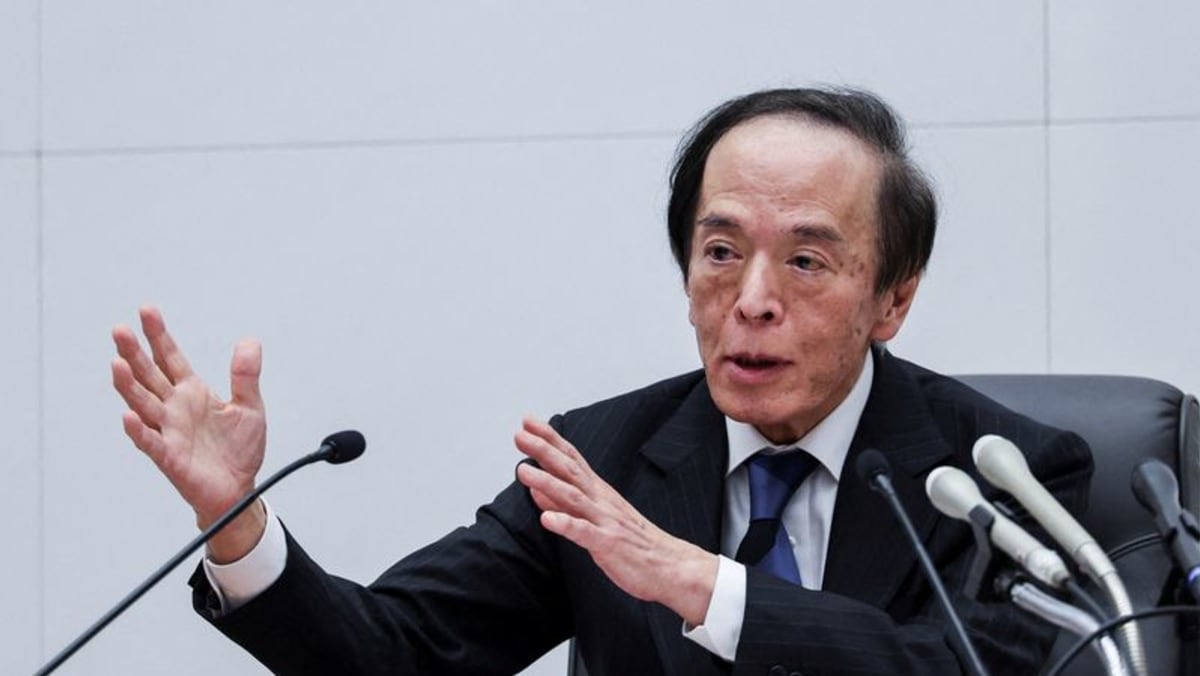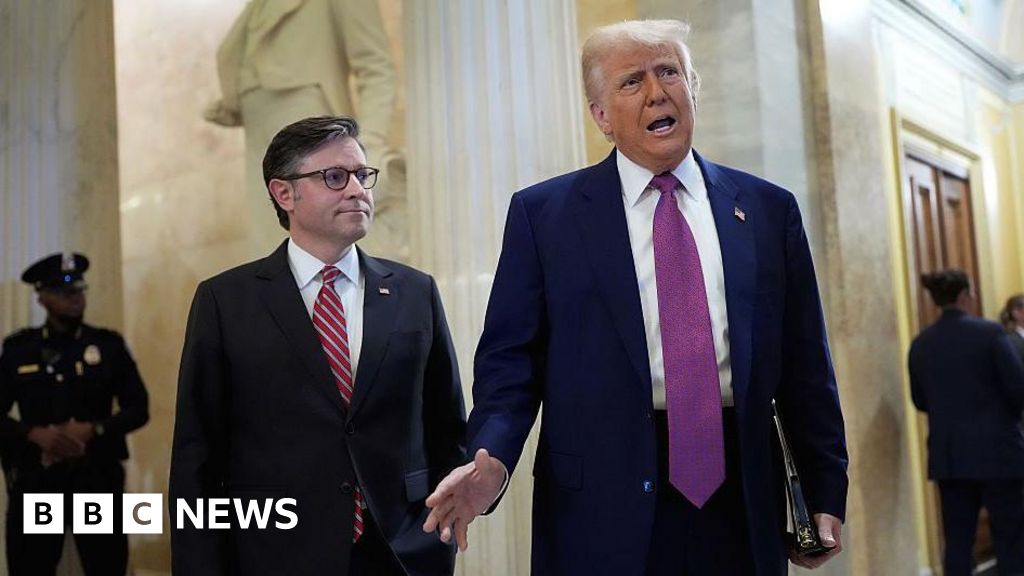West Point's dilemma: Carry out Trump's anti-diversity orders while maintaining academic integrity | CNN
West Point, New York —
Cadets at West Point are used to having their bodies, minds and spirits tested. Right now, school officials are also in a crucible of sorts, under new scrutiny as Trump administration orders impact the United States Military Academy.
As a new class prepares to graduate and hear a commencement address from President Donald Trump on Saturday, changes at the school are bringing into sharp focus just what it means to build military leaders of character, the interpretation of the West Point motto: “Duty, Honor, Country” and the direction of the academy’s alumni known as “The Long Gray Line.”
Directives from Trump and Defense Secretary Pete Hegseth set off a sweeping effort in recent months to scour course offerings and syllabuses, cancelling two classes, cutting some readings and reviewingbooks for possible removal from the library as well as cancelling clubs for students of color and women.
West Point officials insist they can follow these orders and fulfill their mission to shape military officers of the highest caliber.
“Everybody in the profession is completely fine with following the orders that come from duly elected representatives. It’s part of our ethos, which is that we follow orders,” Brig. Gen. Shane Reeves, the school’s dean, told CNN during a visit to the academy earlier this month.
“And that’s what’s made the United States Army so amazing for 250 years, its professionalism, and it will continue to (follow orders).”
But Trump’s orders are unusual in their scope and have sparked concern among many former West Point professors, experts on civilianmilitary relations and lawmakers.
Col. Isaiah “Ike” Wilson III (ret.) was a professor at West Point during 9/11 and the wars in Iraq and Afghanistan.
He calls the removal of material from course syllabuses, “the digital equivalent of burning books,” and worries the academic changes at West Point could signal to cadets that they should blindly follow orders.
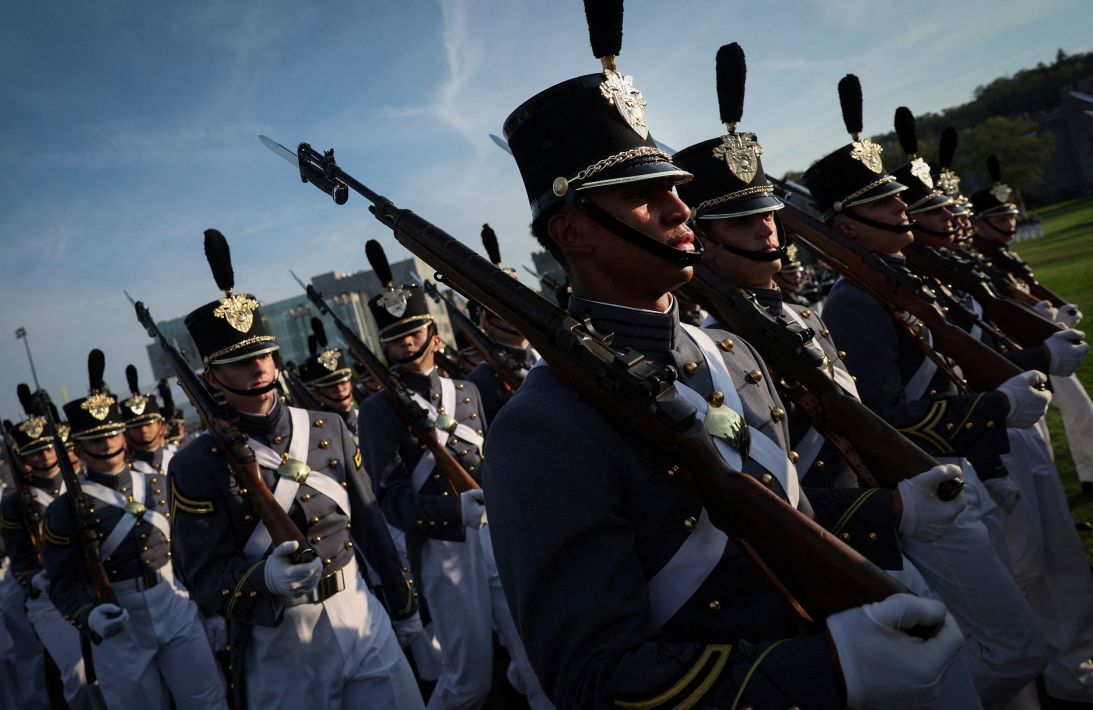
“It politicizes, in a partisan way, the military. And it does it in a very sinister way,” he told CNN.
Brig. Gen. Michael Meese (ret.), a former head of West Point’s Social Sciences Department who served on Trump’s 2016 transition team, does not share that concern.
“I don’t think the intent is to restrict academic freedom. I think the intent seems to be, at least in my observation, to perhaps change the priorities of what cadets should be learning,” he said.
“That is not an uncommon change that sometimes comes from Washington to increase this instruction or decrease that instruction.”
Meese rejects concerns such changes will prevent cadets from getting the education they need to become strong, thoughtful military commanders.
“Critical thinking is not insubordination, it’s a fundamental trait that you want officers to have,” he said,challenging a common refrain from critics on the right that West Point has become “woke” in recent years.
“My experience from talking to cadets is that they are not being indoctrinated into ‘woke’ practices … and if somebody tried to do that, they would be very resistant to that.”
In January, shortly after taking office, Trump signed an executive order called “Restoring America’s Fighting Force.”
He ordered Hegseth and Homeland Security Secretary Kristi Noem to “carefully review the leadership, curriculum and instructors” of military education institutions, including the service academies that matriculate undergraduates, prohibiting them from promoting what he deemed “un-American, divisive, discriminatory, radical, extremist, and irrational theories,” including “divisive concepts,” “race or sex scapegoating,” “that America’s founding documents are racist or sexist,” or “gender ideology.”
To comply, West Point officials pulled readings from courses, including works by revered Black Americans, according to one current West Point professor.
Readings from Frederick Douglass’s “What to the Slave is the Fourth of July?”, Alice Walker’s “In Search of Our Mothers’ Gardens,” James Baldwin’s “If Black English Isn’t a Language, Then Tell Me, What Is?” and Toni Morrison’s “The Site of Memory,” an essay included in a book called “Inventing the Truth: The Art and Craft of Memoir,” were removed from class lesson plans.
Earlier this month, the Pentagon ordered all military academies to identify and remove books from their libraries that deal with issues such as race, gender ideology, and other “divisive concepts” that are now considered “incompatible with the department’s core mission,” according to a memo obtained by CNN.
The process of identifying books for review was to have been completed this week, the memo said.
The Naval Academy had already removed almost 400 books by early April from its main library.
West Point’s Reeves told CNN earlier this month: “At the end of that process, I have no doubt that we’ll be in compliance with the executive orders and be able to maintain the academic integrity of one of the country’s best libraries.”
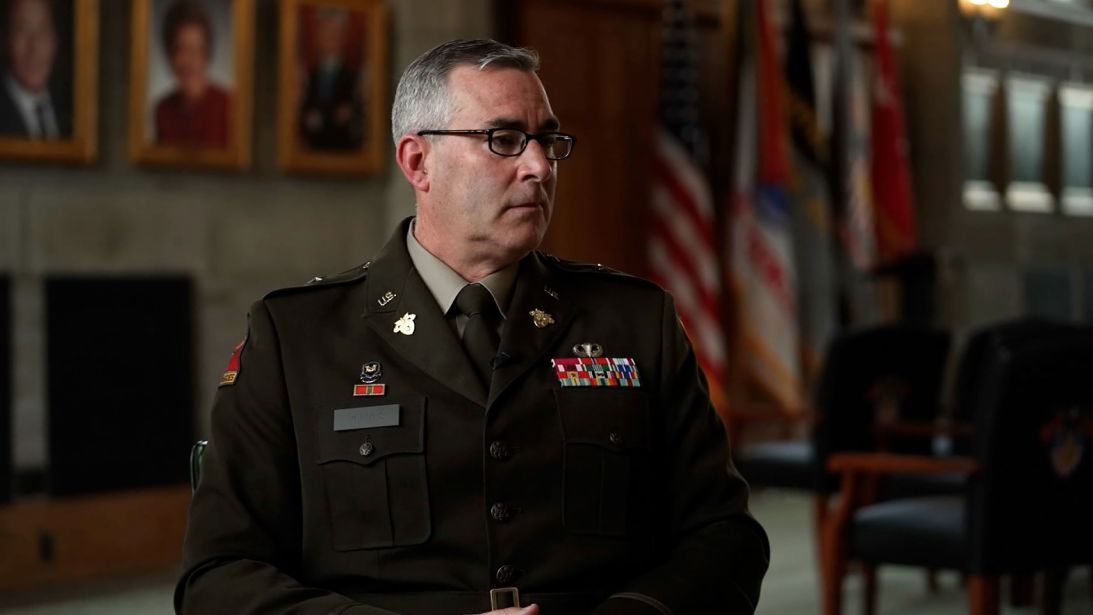
Just days after CNN visited, Graham Parsons, a civilian philosophy professor who teaches military ethics, wrote in an opinion essay for The New York Times that West Point had “abandoned its core principles” of giving cadets “the broad-based, critical-minded, nonpartisan education they need for careers as Army officers.”
He revealed he would be resigning from the faculty at the end of the term after 13 years at West Point, saying, “I am ashamed to be associated with the academy in its current form.”
Hegseth responded on X, “You will not be missed, Professor Parsons.” The Pentagon’s rapid response account called him a “woke professor.”
Parsons has been placed on administrative leave by USMA pending a disciplinary investigation.
Col. Terence Kelley, communications director for West Point, told CNN that Parsons’ argument was “a false dilemma.”
“We can maintain our commitment to academic integrity and intellectual discourse, while remaining fully aligned with national policy and our military responsibilities,” he said.
At West Point, cadets wake before the sun comes up, shoes shined, uniforms squared away.
They spend 47 grueling months on this fortress campus beside the Hudson River to join West Point’s storied alumni, called “The Long Gray Line” because of the gray uniforms cadets wear — and because their lineage stretches back to 1802, when President Thomas Jefferson established the school.
Breakfast is mandatory, so is lunch, and as cadets walk around the academy they pass by the honor code, etched in stone, on a monument in the middle of campus: “A cadet will not lie, cheat, steal or tolerate those who do.”
“We are expected to hold ourselves to the highest standard of character and accountability and to be able to trust one another,” said Cadet Gabby Sorrentino, West Point’s Honor Captain, a member of the boxing team, one of the school’s four Rhodes scholars and the first in her family to join the US military.
Cadet Shep Dzina, also a Rhodes scholar, added: “You can be the most skilled on the battlefield, but if you don’t have character, none of your peers, none of your subordinates or commanders will ever be able to trust anything that’s coming out of your mouth.”
The class of 2025 knows the stakes of the service they are obligated to fulfill after graduation. These cadets began West Point’s hell weeks — the cadet basic training known as “Beast Barracks” — weeks after graduating high school, just in time to witness America’s chaotic and deadly withdrawal from Afghanistan.
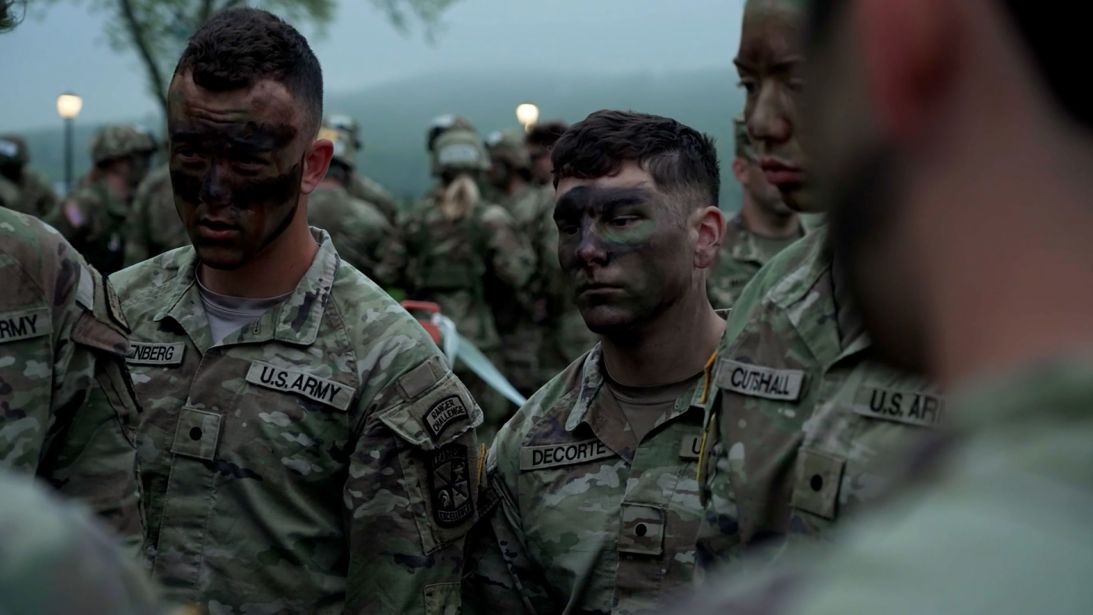
Defense Department policy requires them, like the rest of the military, to remain publicly apolitical. They are prohibited from value judgements about government policies that affect West Point, but they could speak to us about how the academy is preparing them to be military leaders.
“Everything here is designed to be a pressure cooker — from our academic workload to the military tactical demands to the jobs that we have,” says Cadet Jack Wilson, who helps other students meet fitness standards as a physical development officer at the school.
Cadet Wilson’s father graduated in the Class of 1998, and when he graduates in the Class of 2025, he will move down to Fort Cavazos in Texas to lead a tanker platoon of 16 to 20 soldiers.
The academy demands so much that Cadet Maggie Pennington, who followed in her mom’s footsteps to West Point, finds what she calls a “peaceful” escape — by jumping out of planes and helicopters as part of West Point’s parachute team.
“Not everyone’s going to be a stud in every single thing,” she said. “West Point is not an easy institution to get through, and so when things are tough, you’re relying on each other and that brings people together faster.”
Cadet Gabe Savage, a member of West Point’s rugby team, said: “The concept of iron sharpens iron: I feel like West Point does a really good job of that.”
West Point admits cadets from every state. Senators and House members nominate candidates to go through a screening process that includes a physical fitness and medical review, as well as an interview.
“Cadets come from different places in the country, with different strengths, and that kind of combining, brainstorming, develops better solutions,” Savage said.
In 2023, when the Supreme Court ruled that affirmative action race-based college admissions violated the Equal Protection Clause of the Fourteenth Amendment, the high court exempted service academies, including West Point.
Trump effectively nullified that exemption earlier this year by ordering that “every element of the Armed Forces should operate free from any preference based on race or sex.”
The change reverses a decades-long effort, during Republican and Democratic administrations, to make the officer corps better reflect the enlisted soldiers they lead and the country they represent.
“It is the partisanization of an institution that for 250 years next month was born and intended by ‘we the people’ to be non-tribal, all-inclusive, representative,” said the former professor, Col. Wilson, who is among graduates and faculty concerned about how Trump’s orders could change the student body.
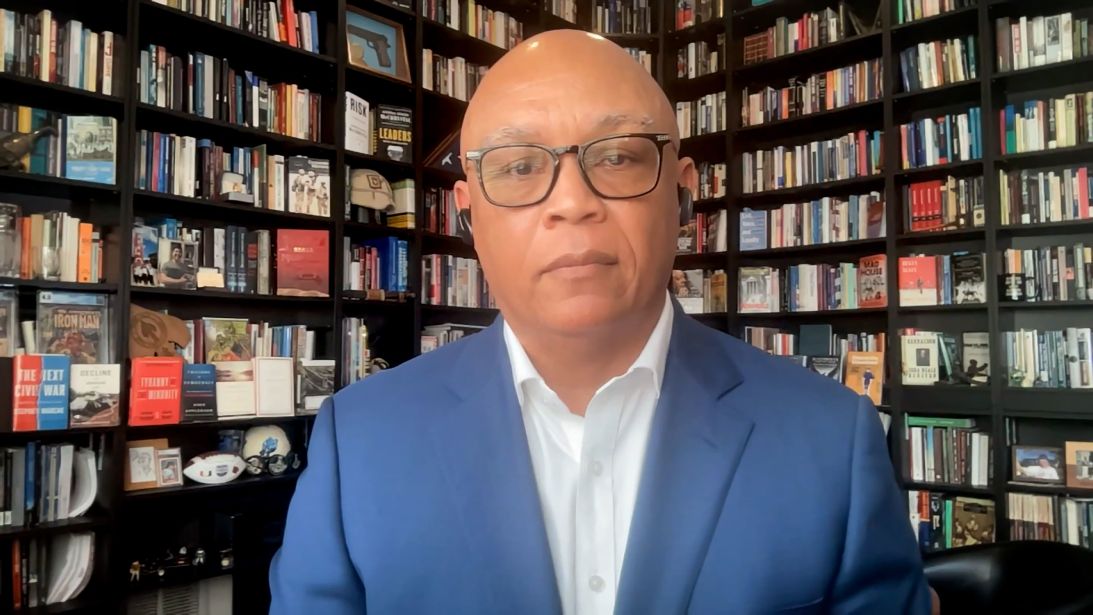
West Point officials point to the required admission of students from every state, determined by members of both political parties, as an assurance that will not happen.
“You’re still going to get the type of person who wants to serve. And those are the same type of kids that have been coming here for a very long time,” West Point’s Reeves said.
“How those state representatives or senators choose their cadets, as long as they’re qualified, is up to them.”
Trump’s orders prompted officials at West Point to cancel 12 extracurricular student clubs, including Spectrum, a gay-straight alliance, and The Corbin Forum, a women’s club that opened in 1976 — the first year women were allowed into the Corps of Cadets at West Point.
It was named for Margaret Corbin, who 200 years before had dressed as a man and fought alongside her husband against the British in the Revolutionary War.
She is the only female veteran honored by a monument at West Point, according to Daughters of the American Revolution, the nonprofit dedicated to historic preservation and patriotism that placed the memorial on campus in 1926.
The school also axed the Asian-Pacific Forum Club, The Contemporary Cultural Affairs Seminar Club, The Japanese Forum Club, The Korean-American Relations Seminar, The Latin Cultural Club, The Native American Heritage Forum and The Vietnamese-American Cadet Association.
Amid these changes, some hallmark experiences of West Point are expected to stay the same.
CNN visited West Point as it held two of its signature annual events: the grueling Sandhurst Military Skills Competition and a research symposium called Projects Day, where cadets presented hundreds of research projects and inventions to modernize warfare.
They showcased how they have trained to confront military challenges with their bodies and minds, assembling rifles blindfolded, and unveiling a rocket that broke the amateur altitude record.
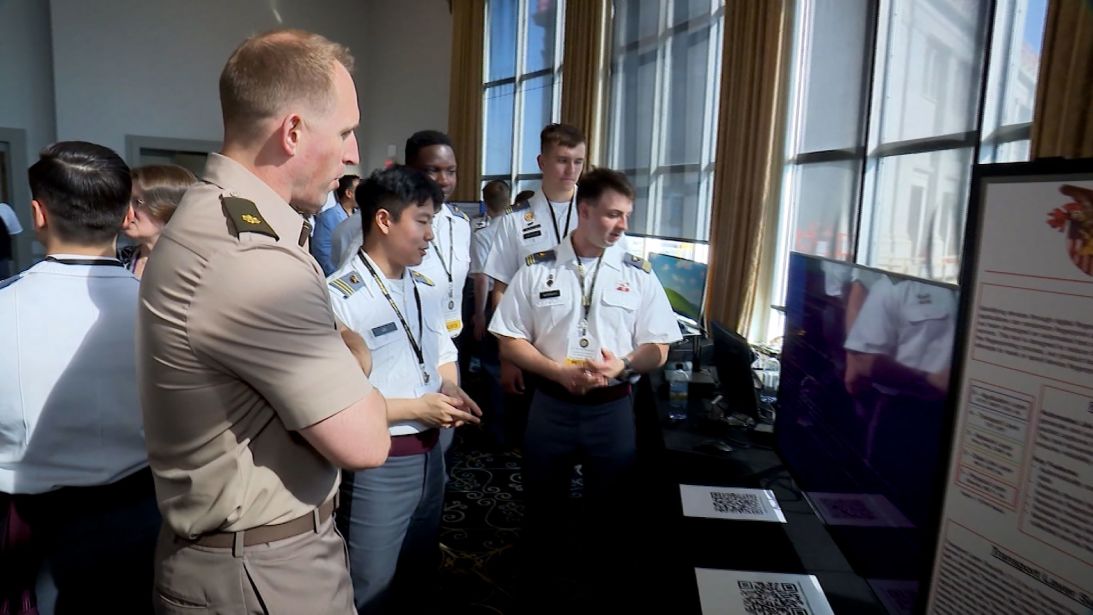
“We’re all here to fight and win our nation’s wars,” said Cadet William Longnecker. “We’re all here to defend the things that we believe in.”
“We have people from all over the country and all over the world that are defending these ideals and values that we all care about, even though we have varying backgrounds and come from all different places,” Longnecker said.









